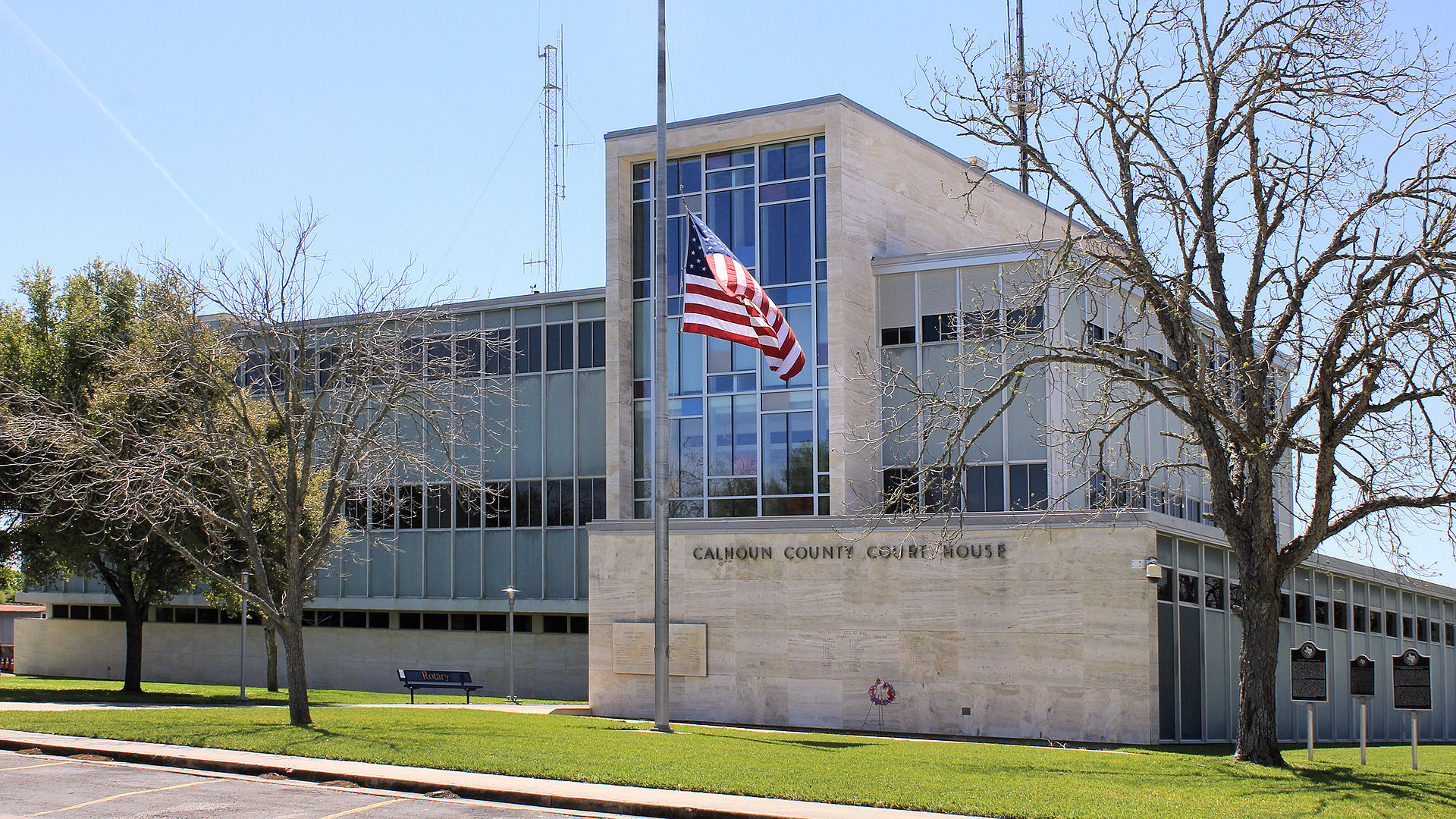Texas Writs of Garnishment to Collect Judgment Liens from Calhoun County, Texas
Busby & Associates is a full-service law firm that specializes in defending, collecting, and enforcing judgments. While our main focus is on garnishing bank accounts and financial institutions, we also offer legal services to those dealing with consumer bankruptcy, family law, and divorce. Our capabilities also extends to child support lien collections and defense, and domesticating foreign child support liens in Calhoun County, Texas. If you’re a judgment creditor unable to collect from a debtor living in Calhoun County, Texas, reach out to us, and we’ll provide the necessary guidance to help you collect your judgment.
Texas Judgment liens in Calhoun County
An abstract of judgment that is properly recorded and indexed creates a lien on all nonexempt real property belonging to the judgment debtor in Calhoun County. To fix the lien, the abstract of judgment must be filed in each county where the debtor has property. The lien remains valid for ten years from the date of recordation and indexing unless the judgment becomes dormant. The judgment on which the lien is based must be final, not interlocutory. However, an abstract of judgment may still be filed if the judgment is being appealed or a supersedeas bond has been filed. If the creditor has established a lien before the appeal, the lien is not affected in the event of affirmation. These rules only apply to Texas state trial court judgments, and for the enforcement of judgments from other states and foreign countries, the judgment must first be domesticated in Texas before an abstract can be filed.
Texas Abstract of Judgment
Texas law allows various parties to prepare abstracts of judgment for judgments rendered in all but small claims and justice courts. These parties include the judge, justice of the peace, clerk of the court, judgment creditor, agent, attorney, or assignee. However, for small claims and justice courts, the judgment creditor is not permitted to prepare their own abstract. It’s also important to note that abstracts of federal court judgments require certification by the clerk of the court. For those looking to abstract their judgment lien in Calhoun County, Texas, the County Clerk’s office at 211 S Ann St, Port Lavaca, Texas 77979 is where you can do so.
Contents
In Texas, a judgment must be documented with an abstract that contains certain information. This information includes the names of the plaintiff and defendant, the defendant’s birthdate (if available), the defendant’s driver’s license and social security numbers (if available), the suit number, the defendant’s address or citation information, the date the judgment was made, the amount of the judgment and balance due, any child support arrearage, and the interest rate. The abstract must also include the mailing address for each plaintiff or creditor, and it must be verified by the creditor’s attorney. Failing to provide the mailing address may result in a penalty filing fee. Declarations that are not verified are not acceptable.
Recordation of Judgment Liens Abstract
In Calhoun County, it is crucial to document the abstract of judgment for debtors who own real property in the same county. The Calhoun County clerk is responsible for receiving and recording the abstract in the county’s real property records. The clerk is also obligated to mention the date and time of recording on the abstract. Additionally, the clerk must include the abstract in the alphabetical index to the real property records, which contains the names of the plaintiff and defendant, as well as the page number where the abstract is recorded.
Abstracts of Domesticated Judgment Liens.
Judgments filed under the Uniform Enforcement of Foreign Judgments Act and the Uniform Foreign-Country Money Judgments Recognition Act are treated as local judgments in terms of enforceability. In Texas, the foreign judgment holder must satisfy the lien requirements when domesticating the judgment.
Property To Which Lien Attaches Non-Exempt Real Property
The judgment lien pertains to all of the defendant’s nonexempt real property situated in Calhoun County, which is the county of recordation.
Keeping the Judgment and Judgment Lien Alive
1. Non-governmental Judgments
The lien from a judgment remains valid for 10 years from the date of recording and indexing, unless the judgment becomes dormant, in which case the lien ceases. To ensure an active judgment, two steps are necessary: (1) maintain the judgment’s validity and (2) obtain and record a new abstract of judgment. A judgment becomes dormant if no writ of execution is issued within 10 years of its creation, but it can be revived through scire facias or a debt action within two years of dormancy.
2. State or State Agency Judgments.
Dormancy doesn’t apply to judgments by the state or its agencies. A valid abstract of judgment filed can create a lien for 20 years from the filing date, and renewal of the lien for another 20 years can be done by submitting a renewed abstract of judgment.
3. Political Subdivisions.
Though dormancy statutes may cause judgments of political subdivisions to become dormant, the political subdivision can revive the judgment at any time. The revival statute, Civ. Prac. & Rem. Code § 31.006, provides that the statute of limitations will not bar the political subdivision. As a result, the judgments of political subdivisions can be revived beyond the two-year dormancy period.
4. Child Support Judgments.
Any child support judgments, whether issued recently or in the past, are covered by Subsection (c) of § 34.001 of the Civ. Prac. & Rem. Code, which exempts them from the dormancy statute.
Property Subject to and Exempt from Execution.
1. Property Subject to Execution.
The property of the debtor who is facing judgment can be taken by execution, provided that it is not exempted by the constitution, statute, or any other rule of law. In most cases, the following kinds of property are not exempt: a. Cash that is held or in checking or savings accounts; b. Pleasure boats, their motors, and trailers; c. Collections, such as stamps or coins; d. Investments, including stocks, bonds, or notes; e. f. Airplanes. Corporations do not have any exempt property.
2. Property Exempt from Execution.
Property that falls within the following categories is exempt from execution, regardless of whether it belongs to a family or a single adult: a) the homestead; b) personal property of various categories defined by law, worth up to a total of $100,000.00 for a family or $50,000.00 for a single adult without family ties; c) current wages for personal service (excluding child support payments) and unpaid commissions for personal service, up to 25% of the $50,000/$100,000 aggregate limit; d) health aids prescribed by a professional; e) worker’s compensation payments; f) cemetery lots held for the purpose of interring human remains; g) property sold, mortgaged or conveyed into trust by the judgment debtor, where the purchaser, mortgagee or trustee can identify other property that will satisfy the judgment; h) assets held in a spendthrift trust for the benefit of the debtor by a trustee; i) certain insurance benefits; j) particular savings plans, such as retirement benefits and health savings plans; k) college savings plans; l) consigned artwork meeting certain criteria.
WRITS OF GARNISHMENT
The post-judgment garnishment process allows a judgment creditor to investigate the relationship between a judgment debtor and a third party to determine if there are any funds or property owed to the debtor. If any debts are discovered, the creditor (garnishor) can obtain a garnishment judgment, which instructs the third party (garnishee) to make payments to the garnishor instead of the debtor.
Requirements to Issue
If certain conditions are met, garnishment can be utilized following a judgment. The creditor must possess a valid and subsisting judgment against the debtor, with the judgment being considered final and subsisting from the date of rendition. Additionally, the debtor must not have filed an approved supersedeas bond to stop execution on the judgment. Finally, the creditor must swear that, as far as they know, the debtor does not have enough property in Texas to fulfill the judgment through execution.
Procedure for Securing Issuance Jurisdiction and parties
An application for post-judgment garnishment is a distinct legal proceeding from the underlying case it is designed to enforce. As an ancillary lawsuit, it must identify the third-party garnishee as the respondent. Furthermore, it should be filed in the same court that issued the judgment to be collected, but with a different cause number.
Service of the writ of garnishment/notice to judgment debtor.
The garnishee must be served with the writ of garnishment, and the judgment defendant is not a required party to the garnishment process. Nonetheless, the defendant must receive a copy of the writ, affidavits, orders of the court, and application as soon as possible after the garnishee has been served. The copy of the writ served to the defendant must include the contents of the writ in a prominent manner, using bold 12-point typeface. Failure to give property notice to the debtor may result in the court declaring any judgment, except for one that dissolves the writ, invalid.
Banks as Garnishees for Writs of Garnishment
For serving garnishment writs on banks, the registered agent’s address mentioned in the financial institution’s registration statement must be used, as directed by Section 201.102 or 201.103 of the Finance Code. Out-of-state financial institutions must comply with state laws by designating an agent for process while filing a registration application with the Secretary of State under Section 201.102. Texas financial institutions can appoint an agent for process by submitting a statement to the Secretary of State under Section 201.103.
Officer’s Return.
When executing a writ of garnishment, the officer must make a return that meets the citation rules. As stated in Tex. R. Civ. P. 663, it is the responsibility of the judgment creditor to examine the return before pursuing a garnishment judgment, especially in cases where the judgment is defaulted. The same rules that apply to citations govern returns in garnishment proceedings. Courts have rejected returns that do not specify the method and location of service on a corporate garnishee.
Forms for the form and Practical Procedure
After locating a bank account or other debt owed by the judgment debtor that can be garnished and determining that it is cost-effective to do so, you can file an Application for Garnishment. To complete the application, the judgment creditor’s attorney must sign the accompanying affidavit and provide essential information, including the original suit and judgment details, the garnishee’s name and officers for service, and any available account names and numbers.
If your judgment comes from Texas, Busby and Associates could potentially assist you in its collection on a contingency basis. For judgments from other states where the judgment debtor is in Texas, the evaluation will be on a case-by-case basis, and a retainer may be necessary. If the judgment debtor and/or judgment is situated in Calhoun County, Busby and Associates can facilitate the garnishment of a bank account or financial institution.














